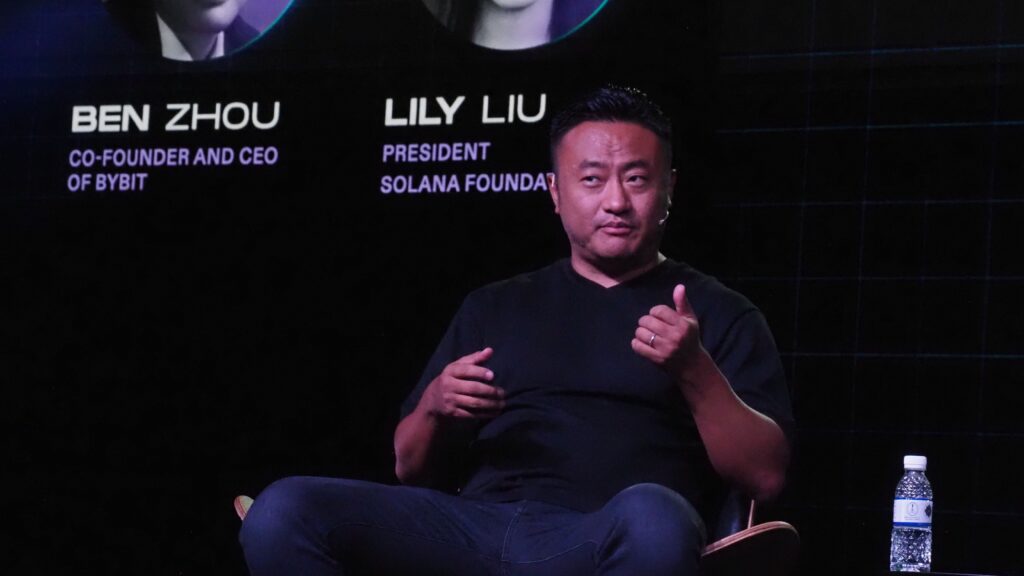Today, an astonishing number of individuals—hundreds of millions, in fact—own Bitcoin and other blockchain-based tokens, collectively valued in the trillions. Yet, the potential of blockchains extends far beyond mere digital currency. These decentralized networks are rapidly becoming the backbone of advanced web applications, which can operate entirely on-chain, just like tokens.
The Future of Web Apps on Blockchain
As we look ahead, projections suggest that by 2025, over 5 billion people will possess internet-connected smartphones equipped with web browsers. This raises a compelling question: what will motivate these users to engage with fully on-chain web applications that offer seamless Web3 functionalities?
I foresee a new blockchain revolution on the horizon, largely propelled by advancements in artificial intelligence (AI) and the innovative concept of “self-writing apps.”
Understanding “Vibe Coding” and Its Impact
A significant trend that aids this evolution is known as “vibe coding.” This involves software engineers leveraging AI tools that can autonomously write and debug code, significantly enhancing productivity. The self-writing app paradigm takes this concept further by empowering non-technical users to create and modify applications simply by conversing with AI.
Imagine a future where anyone can effortlessly create a personal branding website or a unique wedding planning app for a loved one, simply by chatting with AI. Entrepreneurs lacking technical expertise or financial resources will be able to establish e-commerce platforms or sharing economy applications with ease. Enterprises can develop sophisticated customer relationship management (CRM) systems at a fraction of the current time and cost— all without needing any software engineering or systems administration skills.
The Experience of Building Apps with AI
In this new development framework, users will communicate their desires to AI through chat interfaces. They can refresh their web browsers moments later to interact with newly created or updated applications.
Blockchain-based apps offer numerous advantages. They are inherently sovereign and resistant to censorship due to their existence on public networks. Additionally, they are tamper-proof, providing security without relying on traditional cybersecurity measures. Their resilience and seamless integration of powerful Web3 features make them a compelling choice for developers and users alike.
Addressing Security Concerns in Traditional IT
One of the challenges of traditional IT infrastructure is the meticulous nature of coding. Software must be crafted with precision to prevent security vulnerabilities, and the entire ecosystem is sensitive to various security configurations. This often necessitates the implementation of extensive cybersecurity measures, such as firewalls and anti-malware systems.
Trusting AI to operate independently within traditional IT environments can be precarious— a single oversight could lead to catastrophic cyberattacks, including data breaches or ransomware incidents.
Conversely, blockchain simplifies the task for AI in multiple ways. For instance, the serverless architecture of blockchain networks alleviates many coding complexities, accelerating the development process. On platforms like the Internet Computer, code can deliver secure, interactive web experiences directly to users, efficiently handling large volumes of data and enabling the creation of fully on-chain applications, from social networks to enterprise solutions.
The Vision for a “Self-Writing Internet”
At DFINITY, we are staunch advocates for self-writing applications operating on public blockchains, which we refer to as the “self-writing internet.” We have been dedicated to developing the necessary technologies for this vision for several years.
To unlock the full potential of self-writing apps, users must not only be able to create them through dialogue but also continuously update and refine them in real-time. This ensures that users can engage in an iterative process until their applications meet their needs or achieve an optimal design. Without this capability, the self-writing app paradigm will only scratch the surface of its vast potential.
To facilitate this, DFINITY is developing a programming language framework called Motoko, designed for both AI and human users. When an app is updated, the AI must accurately describe any changes to the app’s data structure to prevent data loss. The framework is equipped to identify potential mistakes during the update process, prompting the AI to make corrections before proceeding.
Empowering Users with Caffeine.ai
We believe that the self-writing internet will democratize and decentralize technology on blockchain platforms. We are excited about the upcoming launch of Caffeine.ai, a platform that will enable users to create, own, and update sovereign apps on the Internet Computer and beyond, simply by interacting with the AI through chat.
In the near future, users will be able to request, “Create a personal photo sharing app that allows my family and friends to comment and react with emojis,” or “Build a remittance system for paying my international contractors with stablecoins.”
On blockchain networks, the only limit to creating web applications will be human imagination, rather than technical expertise. This newfound utility will drive widespread adoption of blockchain technology, even if users remain unaware of the blockchain infrastructure powering their transformative experiences.
In conclusion, I have long envisioned a “blockchain singularity” where decentralized networks emerge as a dominant tech stack. I believe we are on the cusp of realizing this vision, and the future is nearly upon us.



